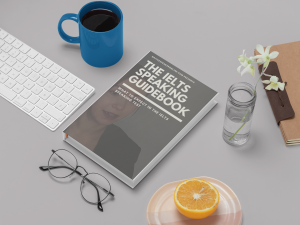Many IELTS candidates think that studying sample model answers for the speaking test will help them. And yes, it’s true, model answers can give you a good idea of how to respond to the examiner’s questions. They can also help you to develop your opinions on different topics. However, there are a few things you should remember.
- Don’t learn answers by heart! This is a bad idea for two reasons. Firstly, the examiner can easily notice pre-prepared answers and will not give you a positive score, even if your grammar was perfect. Secondly, there is a danger that you will answer the wrong question with your pre-prepared answer.
- Spending too much time learning model answers will make you less spontaneous. You need to have an ‘open mind’ in the Speaking test and be ready for any question.
- You should try to understand why a model answer is a model answer. Did the candidate give enough information? Did she connect her ideas well? Did she answer naturally? Was her grammar accurate? Did she use any ‘less common’ words (for Band 7-9)?
- Don’t try to copy ‘Band 9’ answers if you are only aiming for Band 6. You will sound unnatural and the examiner might not understand what you are trying to say. For Band 6, you don’t need to use less common vocabulary and complex grammar structures.
- When you study a model answer, make sure it really is a model answer! A real model answer should score highly for each of the IELTS band criteria — fluency and coherence, lexical resource, grammatical range and accuracy and pronunciation.
My advice is to try to improve your speaking in general, correct your typical mistakes, practise connecting your ideas …. and of course watch the right kind of model answers!

FREE: "IELTS Speaking Guidebook"
Don't Get Caught by Unpleasant Surprises!
This FREE eBook Shows You What Kinds of Tasks and Questions to Expect in the IELTS Speaking Test.

Leave a Reply